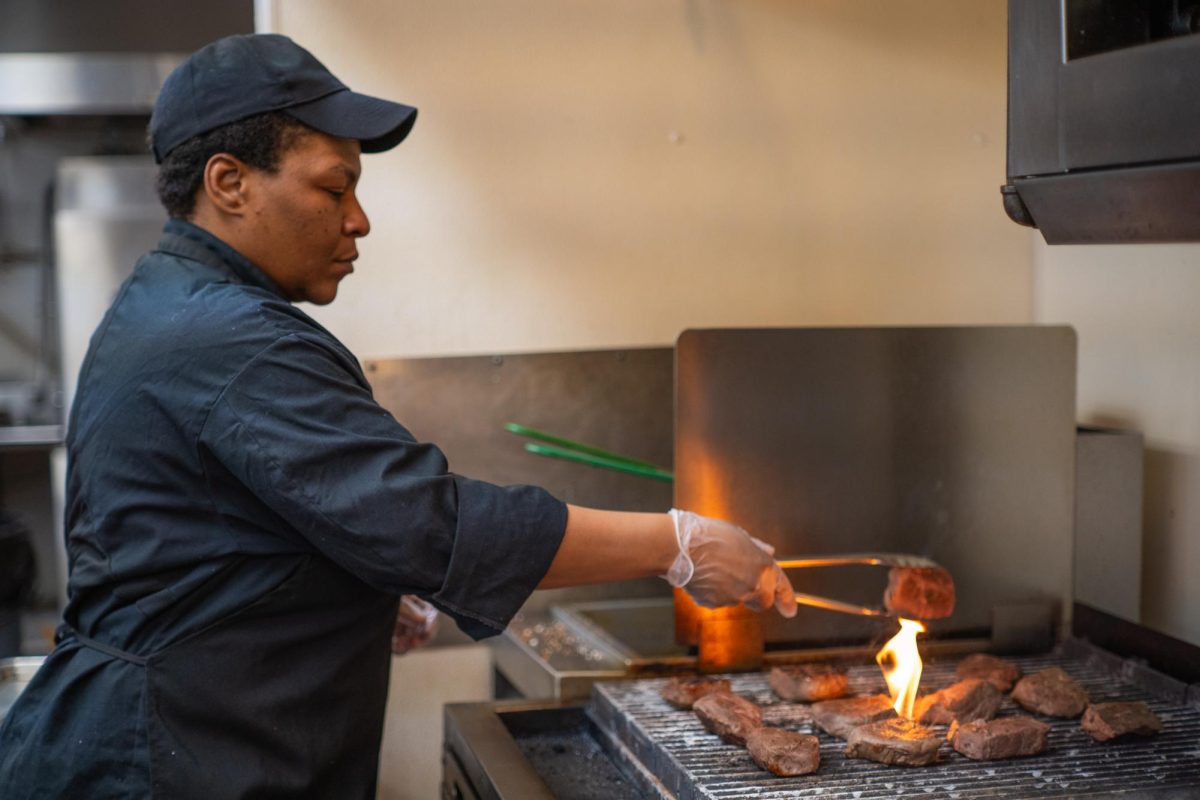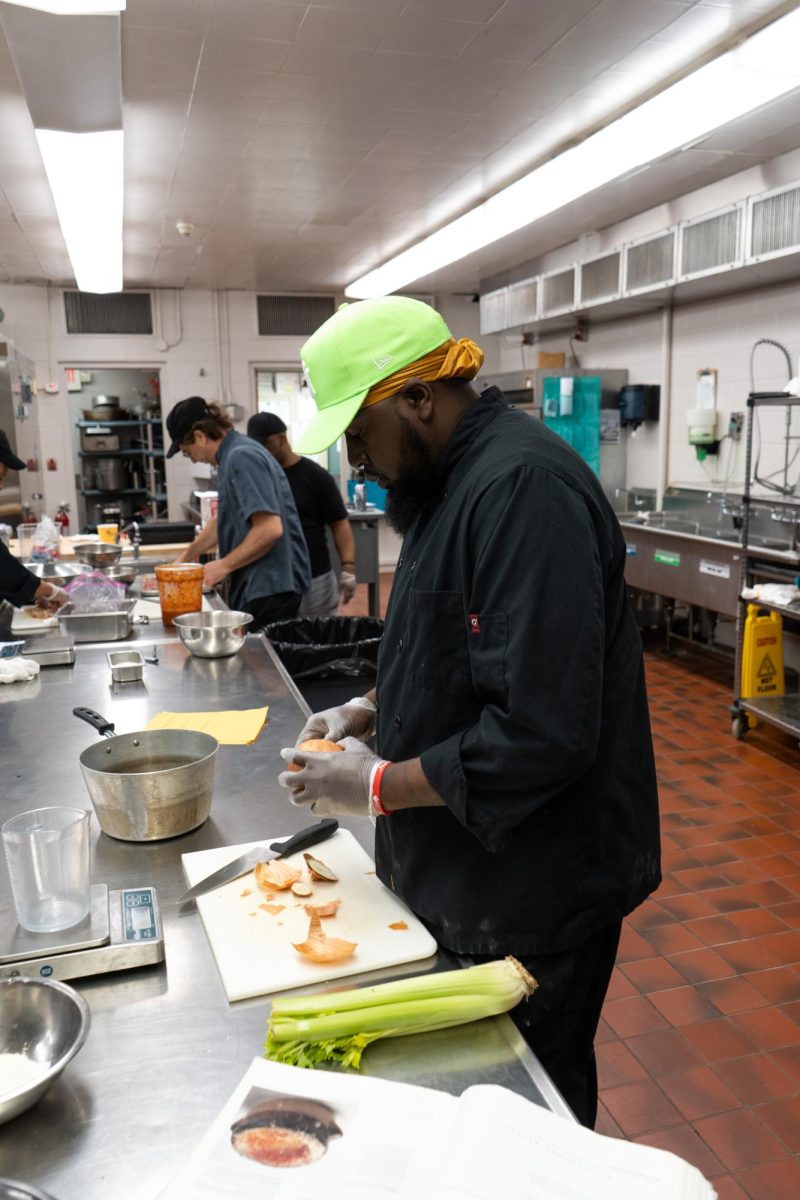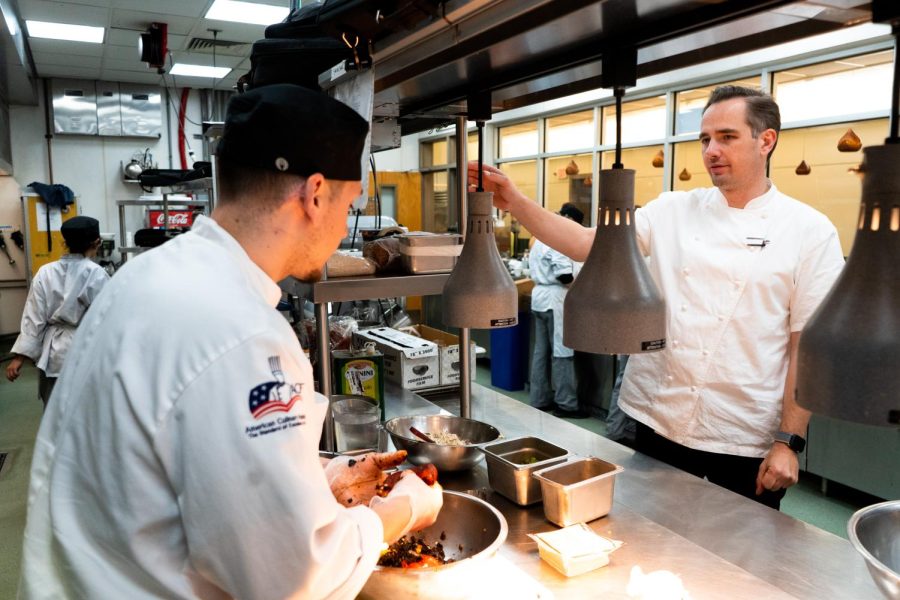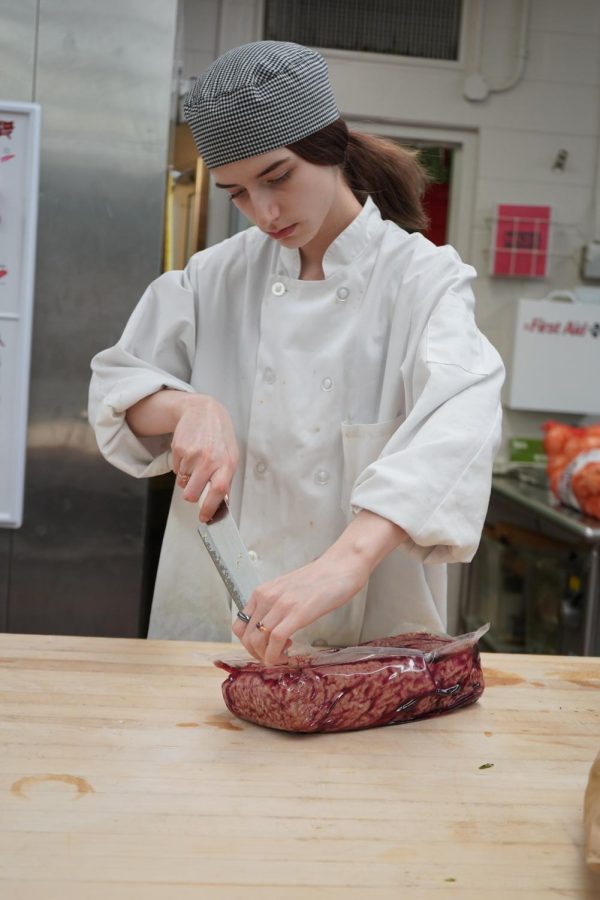It’s jambalaya night and Taurian Black is ready to turn his life around. Working around the kitchen, the cook supplies his colleagues with a side dish as he masterfully chars red peppers in between chopping green beans.
After tonight, Black will be one step closer to becoming a line cook–and one step further from incarceration.
Black is one of six students learning essential cooking skills as part of the Second Chance Program’s seventh semi-annual course for formerly incarcerated individuals. Hosted by the Monmouth County Vocational School District’s Culinary Arts Center in Asbury, N.J., the course aims to line up jobs for those trying to rebuild their lives and teach students to navigate the kitchen.
After the COVID-19 outbreak, restaurateur and Brielle resident Jim Flynn noticed that the pandemic significantly wounded the food industry as restaurant employees thinned out since 2020. In the face of a labor shortage, he partnered with Culinary Arts Center Principal Jaime Soto to locate potential cooks from the formerly incarcerated population.
Since that point, the program has led dozens of students to success, running several six-week classes each year. The curriculum covers equipment safety, culinary arts and working on a restaurant line, aiming to instruct students on navigating the kitchen.
As teacher of the course, Chef Anthony Eugenio takes his own spin on the curriculum by adding themed cuisine each week, such as Greek and Italian dinners. He notes that he doesn’t want to teach only occupational skills, but life skills as well.
“If they decide that after six weeks, ‘Okay, well I did this, maybe the restaurant isn’t for me,’ they can still know how to fry a piece of chicken or make a healthy salad or cook dry beans from scratch rather than all processed canned convenience food, which isn’t really all that healthy for us,” Eugenio said.
These classes aren’t only for cooking. In the first session of Second Chance, four out of the nine participants were homeless. Many students lack access to essential resources, which could even prevent their attendance to the class. To remedy this issue, a counselor visits the class every Tuesday to assist cooks with finding housing, transportation and phone services.
“If you were imprisoned for five, six years, everything’s not waiting for you when you get out, you’re starting from scratch,” Soto said. “It’s not mandatory, but everybody actually sits in when they need to…This counselor helps them out through all of this.”
Many students have found success outside of the classroom and in the real world. According to Soto, one of the course’s first students was shortly hired by McLoone’s restaurant group, a series of establishments settled across New Jersey. When the student wanted to move upward, used his connection with Second Chance to find new employment.
Eugenio, who also teaches at Seabrook Village Assisted Living in Tinton Falls, was recently notified that this student was hired at his other job. Upon discovering this, the chef felt confident enough in his student to not offer any additional recommendations.
The course aims for students to be prepared as not only cooks, but line workers, dish washers and any other job in a working kitchen. However, many students find success outside of the food industry during their course.
“We had another student …living in the (homeless) shelter who was so articulate and did so well that he actually was offered a counseling position,” Soto said. “So he started working for New Jersey Reentry (Corporation) as a counselor and they were putting him through school.”
As for Taurian Black, who hopes to use his newfound skills as a line cook, success is found in his home kitchen, where his two elementary-age children enjoy his cuisine after class.
“My kids are the bigger picture,” Black said. “It ain’t about me, it’s about them. They like to eat just like anybody else.”
In terms of reducing recidivism, the course is successful: according to Soto, of the 30 cooks who attended Second Chance over the years, only one has reentered incarceration after taking the course. In comparison, Wisevoter reports that New Jersey has a 30.4% recidivism rate, and the Federal Bureau of Prisons’ rate is 43%.
Education has proved a critical tool in reducing recidivism throughout the nation. According to an analysis from Rand Corporation in 2013, individuals who received quality education after their incarceration were 43% less likely to return to imprisonment.
While Black, who finished the program on Thursday, March 21, has an unclear future, he notes that he has a job opportunity lined up for him in Memphis, Tenn. In the meantime, he’ll continue to cook for his two children.
“This is a perfect place for if you’re trying to cook, even if you want to do it for yourself personally,” Black said. “Or if you’re trying to work as a cook, a line cook, and try to become a chef, you have to start from somewhere…Especially if you’ve been in trouble as I have and you’re trying to get a second chance in life.”







